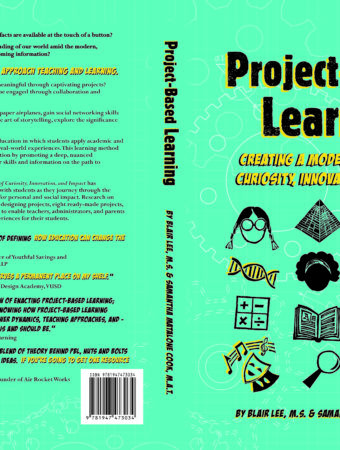
While my parents set up bank accounts for my and my brother when we were young, and later checking accounts, and I got a lecture about money management, compound interest, and investing in the stock market as a high school senior, I wanted to do more for our kids. Much more! Here are some of the things we’ve done to set them up for money management success.
First, we taught the boys patience.
Whenever they saw something they wanted at a store or online, we told them to put it on their wishlists. (Except books. I’m a sucker for buying books.) And then we did just that, putting everything they could possibly want on separate Amazon wishlists. Then, when birthdays or Christmas came around, they would edit their lists, culling out things that no longer interested them and choosing just a few items to rank as high priority. Then we, and the grandparents, had an easy time knowing just what they really would like.
That accomplished a number of things. First, it allowed us to stay on our meager budget when things were tight. The kids didn’t feel like they were being fobbed off or told “no” all the time. They knew that the things they really wanted would be given to them, assuming it was in the budget. It taught them to be selective. It helped them see when their interests were evolving. And they could see that there was no need for instant gratification. If there was something they didn’t get that they wanted enough, they could buy it themselves.
Second, we set up savings accounts for all three boys.
And we brought them along to participate in the process. Our oldest also has a checking account, from which he pays for various classes and we reimburse him. My parents had a policy of matching anything we put into savings, doubling our money. Anything we took out before age 18 had to be paid back, again teaching patience. After 18 it was all ours. (I bought a car with my combined savings.) Our family is continuing the tradition. In fact, the boys’ allowances—doubled—go straight into their accounts, as does at least half of all monetary gifts they receive. That was especially important when we didn’t have much else to put into their accounts or ours. The older boys now manage checking accounts, as well.
(For a couple of ways to stretch your homeschool dollars, go here and here!)
Why now? Why not wait until they’re in high school, at least, instead of when they’re just old enough to sign their own names? We wanted them to be able to save money, to see the interest they earn (such as it is these days), to see their bank accounts increasing. We wanted them to have independence, to be able to save for and purchase things rather than waiting and hoping for gifts. Because it’s harder to spend money in the bank than money in your pocket. And because people who don’t have bank accounts can get stuck in a terrible downward credit spiral.
Third, we set up trading accounts for each of the boys.
And we put a Christmas windfall into each to get them started. They haven’t actually accessed their accounts to trade yet, we’ve been slowly teaching about markets and investing before setting them loose on Wall Street. They all enjoy math, and history, and computer programming, so it’s easy to get them interested in things like interest rates, dividends, monetary policy, and how blockchain currency works. Extra History and Numberphile videos have been great for this!
My husband’s grandmother set her grandkids up with trading accounts when they were young, as well. That early investment helped us make the downpayment on our home. I didn’t have a trading account until I was 27 and in a company that set one up for me for their retirement plan. I knew I should have been investing money for the previous nine years, but never got around to it. We want the boys to be set up early for success. I was intimidated for a long time by the whole idea. Our youngest has now sat on my lap while I was buying stocks and helped calculate how many to get from each company. And I even let him hit the “Buy” button!
Fourth, we’ve encouraged the kids to be entrepreneurs.
They have done things they loved, generally on their own impetus, with some nudging from us to follow through. Yes, they’ve done the usual lemonade stands and sold cookies and bath salts and crafts at our local homeschool Makers’ Market. They’ve sold coffee for fundraising at farmers’ markets.
We’ve also helped them with other things. Our oldest took a summer camp with Minnesota Business Venture and now has his own website and YouTube channel to promote his classical piano business. Our middle son has published a short story, Wizard Frogs and Flying Gnomes, did book readings locally, and is working on another one (or two). Our youngest is always coming up with ideas but still seems to have a hard time grasping that things he finds fascinating (like old rusty springs from a trampoline) aren’t things other people want to buy. But I encourage him to write up business plans anyway and do market research—ask around and find out what his friends want to buy.
It wasn’t until I was out of college that I realized I didn’t have to work for someone else. I ran into someone who was looking for a photographer to start a business with. We started a photo studio together, and I had a lot of fun and learned a lot of hard lessons. I want the boys to know that they don’t have to be limited by the idea of traditional jobs. Jobs can be great, I’ve had some good ones, but jobs are created by someone else who had an entrepreneurial idea once upon a time. Our kids can do that, too, if they want.
(For an interview with another homeschool entrepreneur, go here! Also check out Crash Course’s Business Entrepreneurship and Soft Skills videos.)
Fifth, we’ve included the kids in what we’re doing.
I’ve taken our oldest with me when looking at potential real estate investment properties, to see what kinds of things to look for when evaluating a house, and had him run the numbers to decide whether it would be a good investment. I’ve shown them how I write books, and taken our middle son through the process to publish his own. I’ve let them see our financial statements and how our stocks are doing, and discussed our budgeting process. It’s useful to watch money management in progress.
Kids learn what they see their closest friends and family doing, and goodness knows I didn’t learn anything about business or even balancing a checkbook in school. We want them to be better prepared for life. That’s especially true now that the ideas we grew up with—getting a good education, getting a good job, and being set for life—are quite outdated. Getting a good education is important, but there are a multitude of ways to do so without going into huge amounts of debt in college. And getting a desk job doesn’t provide lifelong financial security. We’re trying to show them a variety of ways to learn and succeed in life outside the box.

Finally, we are teaching our kids a positive money mindset.
That’s a whole post in itself! I still read to the kids, even the teens, every night. Before we get stuck into our fun books I read something educational or uplifting or useful. We’ve read everything from The 7 Habits of Happy Kids to How to Win Friends and Influence People to The Power of Awareness to Rich Kids. I’ll list more ideas at the end! Just 15-30 minutes on a regular basis has given our kids a good grounding in ideas recommended by success experts. Money is a tool, not an end in itself. The kids help us decide where to donate money to help others, and what to spend it on together to make the best memories as a family. Soon they’ll be investing their own savings so they can do the same with their kids.
So are our kids money-making powerhouses? Well, no. I’ve seen plenty of other kids, homeschoolers or not, achieving big things that ours haven’t yet. But I know they have a much better grounding than I did in money management. And that gives me hope.
Here’s a list of books I recommend, that I’ve read for myself or to the kids. Disclaimer: these include affiliate links, which help me do the whole entrepreneur/money management thing.
How to Win Friends and Influence People – Dale Carnegie
Rich Kids: How to Raise Our Children to Be Happy and Successful in Life – Tom Corley
The 7 Habits of Happy Kids – Sean Covey
The 7 Habits of Highly Effective Teens – Sean Covey
The Power of Awareness – Neville Goddard
Rich Dad Poor Dad: What the Rich Teach Their Kids About Money That the Poor and Middle Class Do Not! – Robert T. Kiyosaki
Early Bird: The Power of Investing Young – Maya Peterson (a young author I know)
Blog: Mr. Money Mustache – great advice in a fun format
And you can find my books here!


